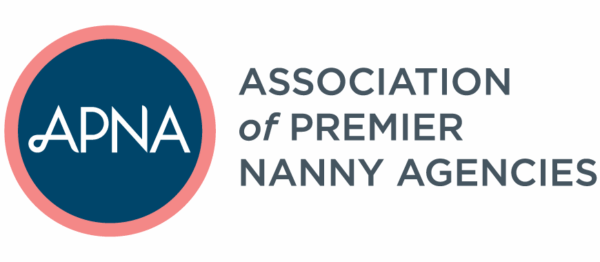During the past few years a new type of pre-employment background check called the National Criminal File (NCF) became available. Vendors claim that as many as 350 million criminal records are included. While those numbers sound impressive, any company that utilizes the National Criminal File as their primary means of checking for criminal records should read the fine print.
There are four different kinds of records that are all referred to as “criminal records.”
- Arrest Records—law enforcement records of arrests.
- Criminal Court Records—local, state or federal records.
- Corrections Records—prison records.
- State Criminal Repository Records—statewide records made up of arrest records, criminal court records and correction records.
This article will discuss the differences among these records and how they come into play with the National Criminal File.
Criminal Justice System Basics
We have said that there are four different kinds of criminal records. They come from different parts of the criminal justice system. When someone is arrested the arresting agency completes an arrest report, which becomes an arrest record. Then, the defendant is arraigned and tried in criminal courts. These records are referred to as criminal court records. At the conclusion of the trial, the case will either be dismissed or the defendant will be convicted. When a conviction occurs, there are several possible sentences. For example, the defendant may have to perform community service, pay a fine, or might be placed on probation. Sometimes the defendant will be sentenced to incarceration. When an individual is incarcerated for a misdemeanor, they will be sent to jail, rather than state prison. If, however, it is a felony conviction, the defendant may be sent to either jail or prison. Generally only the most violent felons, serious drug abusers, and repeat offenders are sent to prison. Records of imprisonment in state prison are called corrections records. Arrest records, criminal court records, and correction records are sent to the state criminal repository.
The Non-Existent Nationwide Criminal Check
While the National Criminal File search sounds extremely good, the reality is that there is no such thing as a nationwide criminal records check. Even the FBI database is not truly nationwide. The FBI database (NCIC) does not include most misdemeanors. Many records never make their way to the FBI because the records must be sent from the county to the state and from the state to the FBI, and frequently there are breakdowns in the process. Nevertheless, the NCIC database is the closest thing that we have to a national criminal database, and it is far more comprehensive than the NCF.
The vast majority of the data included in the NCF is made up of corrections records. Again, only the most serious criminals are sent to state prison. One of our clients requested a background check on an applicant who was a CNA and who worked at the UC San Francisco Medical Center. Since she was licensed, she had been cleared through the California state criminal repository. In spite of receiving a clearance from the state, our client requested a county criminal check in San Francisco. We found that she had murdered her boyfriend with a kitchen knife and had been convicted of manslaughter. She was sentenced to one year in jail and was then placed on probation. If a NCF search was conducted the record would not have been found, as she was sent to jail rather than prison. The state repository did not have a record of this conviction and consequently this information was also not sent to the FBI.
While many of the companies offering a NCF search claim that data from state criminal repositories, corrections records, county criminal court records, traffic records, and sex offender records are included, the truth is that these databases contain very little in the way of records from state repositories or county criminal courts. In Arizona, for example, the NCF does not include criminal data from the Superior Court in Maricopa County, the most populous Arizona county. Arizona is considered a “premium state” by these vendors, because some rural counties are included. You really have to study the fine print to find out what is missing.
Our company has been conducting criminal checks since 1987. We have found criminal records on approximately 7% of the applicants we have conducted background checks on. The offenses have ranged from murder to jaywalking. However, most of the convictions have been for misdemeanor offenses rather than felonies. Most of these individuals do not even go to jail, let alone serving time in a state prison. Since the NCF does not include most misdemeanors, most of these records would never be found through a NCF search.
The largest NCF database includes data from state criminal repository records from only ten states. Most of the state repositories include only some misdemeanors, or none at all. Again, most applicants convicted of crimes have committed misdemeanors, not felonies. Many statewide repositories do not contain records from all counties, as the counties often fail to send records to the state repository.
There is another serious problem with the NCF– much of the data is stale. For example, some versions of the NCF include a “Florida Courts database from all 67 counties.” The problem is that the database is only updated every six months, or even less frequently.
An additional problem exists. Most of the records in the NCF databases do not include identifiers, like Social Security numbers or dates of birth. Therefore, if you run a NCF search on someone with a common name, you will receive many records that have absolutely nothing to do with your applicant. You will have to request county criminal checks where records are reported to determine whether the NCF records are relevant.
Fair Credit Reporting Act Requirements
If you decide not to hire an individual based upon information reported in the NCF, you are compelled under the Fair Credit Reporting Act to give the applicant a copy of the report, a summary of their rights under the law, and what is called an “adverse action letter.” The applicant is then given the right to dispute the accuracy of the information. You are then required to verify the information. If you do not comply with these provisions of FCRA then you open yourself up to being sued by the applicant.
Another issue with FCRA that you should be aware of is that FCRA requires that “the best possible source” be utilized when conducting a pre-employment background check. Given the holes in the NCF that have been discussed, a strong argument could be made that the NCF does not meet the criteria of the “best possible source.” Some industry experts have taken the position that the NCF does comply with FCRA when used simply as a pre-screening tool to “generate leads.” Our company will not offer the NCF as a stand-alone product, but only in conjunction with a county or state criminal records search, as we do not want our clients to have a false sense of security based upon a flawed criminal search.
The Bottom Line
The NCF does throw out a geographically “wider net” than a county criminal check. While the net is wide, the holes are so large that great white sharks can swim through them. There is just no substitute for a tightly focused county criminal court search conducted in the locations where the individual has lived. The county criminal check should be requested in conjunction with a Social Security Number verification, which identifies the counties that should be searched for criminal records. The net is smaller, but it is tightly woven and thrown into the place in the water where the fish are likely to be biting.


